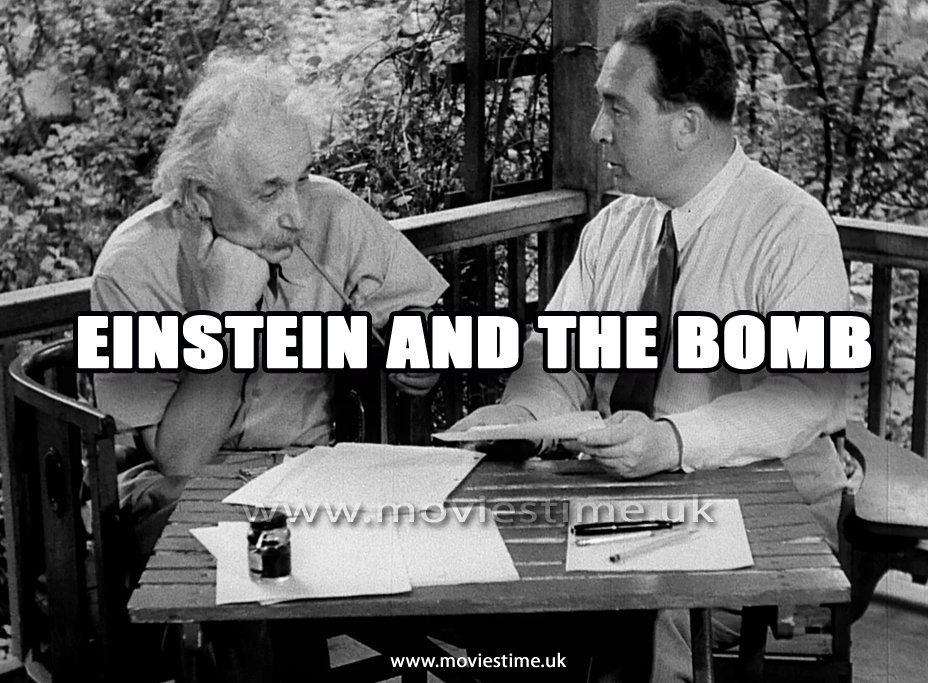Best Movie-Albert Einstein and The Bomb
Introduction: Demystifying Albert Einstein
In the pantheon of logical figures, hardly any figure looms large as Albert Einstein. Beloved for his earth-shattering speculations on relativity and deep understanding of the idea of the universe, Einstein’s legacy rises above the scientific world to capture the famous creative mind. However, behind the facade of a virtuoso hides a complex and mysterious figure whose ethical excursion will fascinate and confound perhaps the most obscure part of humanity.
The Manhattan Venture: Unleashing the Power of the Atom
The backdrop against which Albert Einstein‘s ethical odyssey unfolds is the Manhattan Enterprise, a top-secret operation sent by the United States during World War II to promote nuclear weapons. As the spirit of global struggle developed and the Hub Powers advanced in their atomic exploration, the United Powers sought to harness the staggering power of the iota for military purposes.
The Manhattan Task addressed a combination of logical brilliance and wartime needs. Led by physicist J. Robert Oppenheimer, this venture brought together the absolute greatest minds in materials science, science and design to unlock the secrets of atomic fission. Hidden away in remote areas such as Los Alamos, New Mexico, and Oak Edge, Tennessee, researchers worked feverishly to overcome the formidable, specialized difficulties of producing a working nuclear bomb.
The Einstein Puzzle: From Conservative to Favorable to Atomic Research
At the beginning of the Manhattan Task, Albert Einstein ended up being confronted with a significant moral situation. A staunch radical and ally of world harmony, he was deeply involved in the possibility of adding to the enhancement of weapons of mass destruction. In any case, despite mounting evidence of Nazi Germany’s atomic aspirations, Einstein was hesitant to affirm his commitment, believing that a more significant basis for overcoming oppression would legitimize the means.
Einstein’s ethical mathematics was shaped by the international truth of the time. With Europe engulfed in the flames of war and extremist powers taking steps to submerge the world, the specter of Nazi Germany acquiring nuclear weapons was a dire situation that could not be overlooked. Despite his questions about the ethical quality of the struggle, Albert Einstein admitted that the United Powers were sincerely convinced of direct atomic exploration as a deterrent to Nazi hostility.
Letter to Roosevelt: A Critical Decision
The basis of Albert Einstein’s contribution to the Manhattan Enterprise was his critical letter to President Franklin D. Roosevelt, in which he emphasized the criticality of starting an atomic weapons program. Referring to the potentially terrifying results of Nazi Germany’s acquisition of nuclear weapons, Einstein asked the US government to focus on nuclear energy research. This pivotal letter would set in motion a chain of events that would guide history until the end of time.
Albert Einstein’s letter to Roosevelt epitomized the moral complexity of his situation in the field of atomic research. While he was aware of the grave risks associated with the development of nuclear weapons, he felt an urgent need to assist efforts to ensure that they were not constrained by repressive systems. In doing so, he wrestled with the tension between his ethical convictions and the exigencies of wartime legislative issues, ultimately deciding to prioritize practicality over vision in the interests of all.
Unimaginable Reality: Facing the Fallout of Hiroshima and Nagasaki
The moment the Manhattan Enterprise ended with the dropping of nuclear bombs on the Japanese urban communities of Hiroshima and Nagasaki, the full extent of Einstein’s ethical situation became frighteningly clear. Staggering casualties and unimaginable experiences caused innocent ordinary people to force Einstein to face the unsavory truth about the weapons he had rejuvenated. Haunted by the specter of atomic demolition, he transformed in the post-war period into a sincere advocate of harmony and atomic demilitarization.
The outcome of Hiroshima and Nagasaki marked a defining moment in Albert Einstein‘s ethical turn of events. Shocked by the unpredictable annihilation caused by nuclear weapons, he decided to commit himself to the cause of atomic demilitarization. In a popular letter to Notice of the Nuclear Researchers, Einstein declared: “The released force of the particle has changed everything except our perspectives, so that we are headed for a catastrophe without parallel.”

Inheritance and Reflection: An Illustration for the Present Time
“Einstein and the Bomb” concludes with a sober reflection on the enduring tradition of Albert Einstein‘s ethical battle and its relevance to contemporary predicaments. As the world grapples with the spirit of atomic expansion and the moral consequences of logical progress, the film comes alive as a powerful sign of the demand for vigilance, moral purity, and the constant certainty of seeking harmony. In an age characterized by mechanical development and international vulnerability, Einstein’s ethical excursion remains a useful example and a source of inspiration for the people of the future.
Dedication: An Immortal Illustration of Science and Morality
In Albert Einstein and the Bomb, director Ava DuVernay incredibly explores the perplexing territory of science, profound quality, and struggle to create a true story of immortal significance. From the perspective of Einstein’s ethical excursus, the film welcomes viewers to grapple with the moral complexities of logical revelation and the foundations of sound stewardship in an age of remarkable innovative power. As we face the difficulties of the present and shift our focus to an uncertain future, the examples of Einstein’s ethical odyssey resonate with deep despair and help us remember the ageless foundation that harnesses the power of information for the betterment of humanity.

